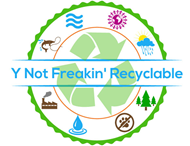[ad_1]
Fifty years ago today, not long after WWF-Canada was founded, environmentalists took to the streets to celebrate the first Earth Day. The demonstrations went global 20 years later, inspiring a new generation. This year’s Earth Day anniversary would’ve been part of a month of international student-led climate strikes.
Then everything changed, and now we’re all staying home to fight this unprecedented pandemic.

Sunlight eclipsing planet Earth (c) Bjorn Holland/Getty Images/WWF-Canada
It’s understandably difficult to look forward when a dire emergency is impacting us right now. But we have a rare, fleeting opportunity to protect people in the present and safeguard our future — not only by doing all we can to fight the coronavirus, but also by building an economic recovery that includes reversing biodiversity loss and reducing climate change by restoring nature.
Emerging diseases are not unconnected to these dual crises that we’re already facing. Diseases passing from animals to humans, from coronaviruses to Lyme disease, are on the rise as global temperatures shift wildlife habitats and biodiversity declines. World Health Organization researchers have also found “changes in infectious disease transmission patterns are a likely major consequence of climate change.”
At the same time, a million plant and animal species remain at risk of extinction and Earth is on track to warming levels that are already leading to catastrophic effects like sea-level rise, extreme fire weather, flooding and droughts.
It’s almost too much to think about, especially while we’re already dealing with tragic loss of life and the effects of a shut-down economy.
But the response to COVID-19 has proven that Canadians, and the world, can come together to protect each other.
We must recover our economy in a way that limits our risks from future pandemics, biodiversity loss and climate change. These three challenges can all be addressed by major investments in solutions that strengthen nature, including massive restoration of land cover, shorelines and wetlands; a return to complex forest ecosystems and healthy watersheds; and conserving Canada’s globally important natural carbon stores.
Why invest in unsustainable industries when the benefits of the alternatives not only create quality jobs, local economic opportunities and reduced greenhouse gas emissions, but also offer the promise of reversing wildlife decline throughout our country?
Nature needs our help and we, more than ever, need nature. Let’s realize our potential and meet this transformative moment together.
Fieldnotes is WWF-Canada’s newsletter about our evidence-based work finding solutions in the face of an unprecedented crisis in climate change and wildlife loss. Click here to subscribe and get it direct to your inbox.
Source link
Y Not Freakin’ Recyclable Home
 Pollution Climate Change Holocene Deforestation Population Acidification Y Not Freakin' Recyclable
Pollution Climate Change Holocene Deforestation Population Acidification Y Not Freakin' Recyclable



